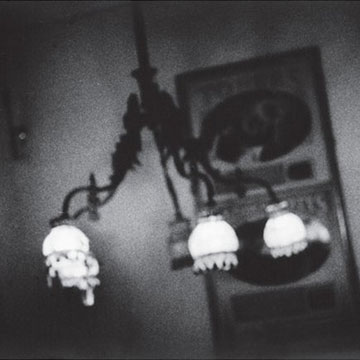I’ve yet to watch an entire episode of The X-Factor. Tonight I intend to change that, and to walk you -- the misfortunate reader -- through my experience into uncharted waters.
The acts have to perform a song by George Michael (either during his days with Wham! or as a solo artist). If this isn’t a set-up for Jedward then I don’t know what is.
By the way, how many George Michael songs can you name? Once you get past “Wake Me Up” and “Last Christmas”, I’m very much struggling.
Here we go…
It starts with the most over-the-top introduction in televisual history. It is a flashy recap of what happened last week, with a voice-over by the guy who does those second-chance Sunday adverts for E4 [!?] This makes even
the opening credits for Batman & Robin look understated. No easy task.
The Judges have just been presented before us in a fashion not unfamiliar to
Triple H or
The Rock. Cheryl is wearing, er, something. That’s a start anyway. We’re only five minutes into proceedings, and I’m already overwhelmed to the point of epilepsy. Not good.
As an aside, Cheryl Cole: the most beautiful woman in the world, or a decent looking girl with loads of make-up and hair extensions? You decide.
Lloyd is getting ready to kick things off, with what Cheryl calls George Michael’s most “recognisable” song. If this isn’t either “Last Christmas” or “Wake Me Up” then I’ll be extremely disappointed. Simon muses that if Lloyd was a cat, he’d have used up 8 of his lives by now. (Lloyd is not a cat, incidentally). In other words, Lloyd needs to produce the goods tonight. Will he?
His performance is short and, well, average. Louis compliments Lloyd on his new hair cut, which is a classic case of damning with faint praise, given that Lloyd probably didn’t even cut his own hair. In other words, having just heard someone sing a tune in order to be judged, Louis decides to give some kudos to Lloyd's barber. Non sequitur much? Simon is much more positive, but you know he’s probably just being so merely to disagree with Louis (oh those two!). Cheryl says that Lloyd is turning into a man right before her eyes, and then undoes all of that by calling him “adorable”. Adorable!? Babies and cats are adorable, Cheryl, and as has been made perfectly clear already, Lloyd is not a baby, nor a cat. He’s a man, and men are not adorable. Cheryl couldn’t have been more patronising if she walked up to Lloyd on stage, spat on a tissue, and started cleaning around his mouth so that he’d “look nice for all the girls”. Danni said things before anyone else did, but she (like Cheryl earlier) doesn’t seem to understand that when the audience is screaming, the judges can’t be heard.
I wish the audience screamed more.
My verdict? If Lloyd was a cat, he wouldn’t be allowed to enter the X-Factor, which I think is grossly unfair. I say all felines rise as one and put the producers of this anti-cat show in their place! As Jedward are proving week by week, it is not a singing competition, so I’m sure there’s something the cat community can do to win over the public. May I suggest getting milked?
Dermot O’Leary welcomes us back, and next up is the only girl left -
Stacey. Danni simply calls her “the voice”, which might be a ploy to take the attention away from Stacey’s face. I’m sorry. That was mean and uncalled for.
Stacey seems like a nice girl. Down to earth and all that. Seriously. She’s just not very attractive, but since when has that mattered when it comes to being a huge popstar [?].
The performance starts shakily, and continues on in that manner. Oh dear. “The voice” isn’t working tonight. She seems to be okay on the big notes, but there is a notable lack of consistency. Over to the judges.
Louis doesn’t mention anything about tonight’s performance, and neither does Cheryl. Criticism by omission? Simon finally talks about stuff that actually happened tonight, and says much the same things as I did. I’m not sure how that makes me feel. Not good, is my gut reaction. Danni finishes things off this time, but she fails to mention anything relevant. If I were to turn the tables and judge the judges right now, Danni would be gone. She serves no discernible purpose.
Stacey is obviously liked by all, which seems to be clouding the judgement of at least the judges, and probably the voters. She is a good singer, but nothing special. In a sort of backwards way, her not-very attractiveness seems to be working in her favour. Because she doesn’t have “the look”, people are almost assuming that she has “the voice”. On the evidence of tonight, she doesn’t. She is better than that cat Lloyd, though.
So far, the performances are as
underwhelming as the production is
overwhelming. Let’s see if John and Edward can change that. Shock horror, they will be doing a Wham! song.
They’re dancing on top of a table with a couple of girls. Good start. They’re also singing in tune, which is more than what can be said for some of Stacey’s performance. It is all very circus-ish, however, with a man at the front of the stage just spinning on his head…for no particular reason. I’m not sure who this campness appeals to, but clearly people are being won over. What is it with these two? What do they have that others don't? They seem to have this special gift, almost a factor, that is mysterious and undefinable. But whatever it is, they have no business on a show like The X-Factor. None at all.
Once again, Danni talks while the audience is screaming. Simon says that Jedward are like Louis’s own little action men dolls, but not in a creepy way (I think, though I hesitate to jump to a definite conclusion). More in a “using them to make millions of pounds” kind of way, I imagine.
Next up is Arsenal’s
Eduardo. I was thinking that he wasn’t all there against Sunderland this afternoon.
Actually, it’s
DanYl, and he is singing one of George Michael’s most famous songs. If this isn’t either “Last Christmas” or “Wake Me Up”…
After a verse of it, I still don’t know what song it is, but he’s doing okay. Probably the best singing performance yet, which really isn’t saying much. But you can only beat what’s put in front of you, right?
Danni talks while the audience...ah, you know the drill at this stage. Louis sticks the knife into Simon, and Cheryl goes after Danyl by dubbing the performance "flat". After judging which has mostly consisted of ignoring everything about the performances on the night, these comments are a little out of the blue. Sure Danyl wasn’t fantastic, but he was certainly better than the rest. Perhaps he’s just not very likable? Or perhaps,
unlike David Brent, Louis and Cheryl don’t like people of mixed race. What about the melting pot, guys? Simon says Danyl exhibited what is known in the business as “respecting the song”, which is something Simon can’t quite define, which makes you wonder if he just made that term up there and then in order to appear knowledgeable and clever. If I know Simon Cowell like I think I do, however, that clearly isn't the case.
Next up is Olly.
“Late” by Ben Folds plays in the background as he hugs his parents during a video montage, which finally gives me something musical to enjoy. By the way,
Olly looks like Gary Barlow’s love child. Also, Olly plans on being more “sexy, and modern, and current” tonight. Has he been performing as a medieval minstrel thus far, or something?
Well if wearing black and sitting down is considered sexy and modern, then Ollie is
on fire tonight! It also doesn’t hurt that he has half a dozen female dancers wearing catsuits gyrating around him. He could be wearing a Brian Cowen mask while singing a
Richie Kavanagh song right now and it would still be sexy, thanks to his environs.
Ignoring Danni, Louis says that he likes how “not fake” Olly is. That’s probably as much a dig at some other contestant, more than likely Danyl (I say that purely because of the ‘y’ in his name. How fake is
that!?). Much like Stacey, Olly is well liked. Niceness seems to be taking ordinary people a long way in this competition, which is no bad thing. I missed Simon and Cheryl’s comments, but if their previous is anything to go by, they talked about
anything but the stuff happening right in front of us.
Finally, we have Joe. Not Jo. Not Joh. Not Joye. Just Joe. I like him already. Let’s see if he can sing.
Simon nods during the performance as if to say “Yes, he can”. I agree. Allow me to indulge in some hyperbole before the judges do - “Best singing performance in the history of music”. “You will not only win this competition, Joe, but you may well become president of world”. “You make me want to be a better man, Joe”.
To the judges, then.
Danni lauds Joe for his honesty of voice. Louis calls it the best performance of the night, but points out that the song was penned by Elton John, which is slightly bending the rules. Simon and Louis engage in some light-hearted banter over Louis’ throwing of the rule book, which is of course
hilarious. You just know those two are sleeping with each other outside of the show, don’t you?
Well, as the adage goes, the show must come to an end sooner or later, and so we close with a quick recap of the performances. All pretty average, with Joe just about rising above the rest. If any of these people hit the big time, then I promise to buy
Michelle McManus’ latest album, which, rumour has it, is simply a recording of her eating different types of food. Track number four -- tentatively entitled “Apple” -- is supposed to be a classic in the making by all accounts.
I can’t say I enjoyed my X-Factor experience, but I’d be lying if I said I’ll never watch it again. Is it necessary that I watch it? Well, is it necessary that I drink my own urine? No, but I do it anyway, because it’s sterile and I like the taste.
Did I just liken watching The X-Factor to drinking your own urine? Yeah, that sounds about right. Oh the wisdom of Patches O’Houlihan. It knows no bounds.











